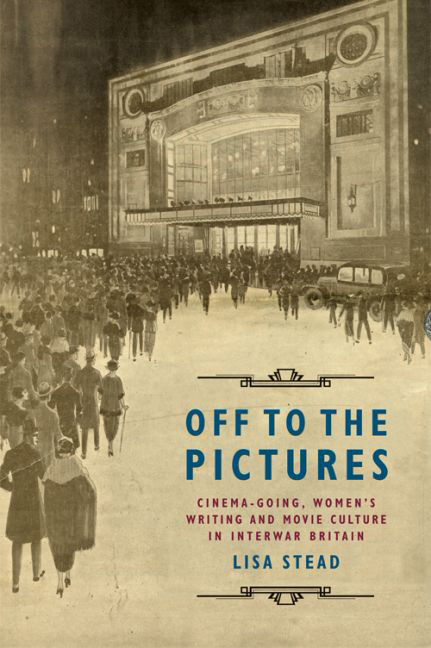Book contents
- Frontmatter
- Contents
- List of Figures
- Acknowledgements
- Dedication
- Introduction
- 1 Off to the Pictures: Cinema, Fiction and Interwar Culture
- 2 Screen Fantasies: Tie-ins and the Short Story
- 3 Middlebrow Modernity: Class, Cinema-going and Selfhood
- 4 Wander, Watch, Repeat: Jean Rhys and Cinema
- 5 Film Talk: C. A. Lejeune and the Female Film Critic
- 6 Elinor Glyn: Intermedial Romance and Authorial Stardom
- Afterword
- Bibliography
- Index
5 - Film Talk: C. A. Lejeune and the Female Film Critic
Published online by Cambridge University Press: 15 September 2017
- Frontmatter
- Contents
- List of Figures
- Acknowledgements
- Dedication
- Introduction
- 1 Off to the Pictures: Cinema, Fiction and Interwar Culture
- 2 Screen Fantasies: Tie-ins and the Short Story
- 3 Middlebrow Modernity: Class, Cinema-going and Selfhood
- 4 Wander, Watch, Repeat: Jean Rhys and Cinema
- 5 Film Talk: C. A. Lejeune and the Female Film Critic
- 6 Elinor Glyn: Intermedial Romance and Authorial Stardom
- Afterword
- Bibliography
- Index
Summary
Dear Philip French, here are some film reviews I wrote (much) earlier.
P. FrenchIn 2013, the veteran The Observer film critic Philip French received a parcel from a fan: a gift to mark both his eightieth birthday and his retirement from newspaper criticism. Sent by reader Zoë be Basi, the package contained a handwritten notebook created in 1932 when de Basi was sixteen years old. It was decorated with a pencil sketch of matinee idol Clive Brook on its opening page, and was filled with a year's worth of film reviews.
Smith's diary presents a fascinating document for exploring the cinema-going habits and tastes of a cine-literate, middle-class girl in the early sound era. In his The Observer article describing the notebook, French noted that Smith recorded having seen some seventy-six films, professed a dislike for horror and Westerns and a preference for the Marx brothers and Frank Capra. A cinema-goer from age seven or eight, French recounts that Smith began the diary in her last year at school before leaving to become a receptionist, marrying in 1948 and setting up her own salon in Kingston upon Thames. The year-long film record was the only one she kept, however, and while she remained a cinema fan, she never pursued writing further.
As an object of everyday ephemera, we may situate the diary as one small fragment in a wider web of amateur and professionalised female film criticism emergent in this period. Smith's decision to write about film can be read as an unofficial entry point into a developing culture of ‘film talk’, a discourse that was in no small part creatively moulded by female voices. In offering French the diary, Smith referred to him as a ‘great follow-on to CA Lejeune’ (cited in 2013: n.p.), namechecking the writer who had proceeded him as film reviewer at The Observer, and one of the earliest and most prominent women in British film criticism. As the creative product of a reader-turned-amateur-critic, therefore, Smith's diary is suggestive of the potential influence of women's cinema writing upon female cinema-goers, and the resonance of mainstream film criticism in women's everyday lives.
- Type
- Chapter
- Information
- Off to the PicturesCinemagoing, Women's Writing and Movie Culture in Interwar Britain, pp. 127 - 155Publisher: Edinburgh University PressPrint publication year: 2016



